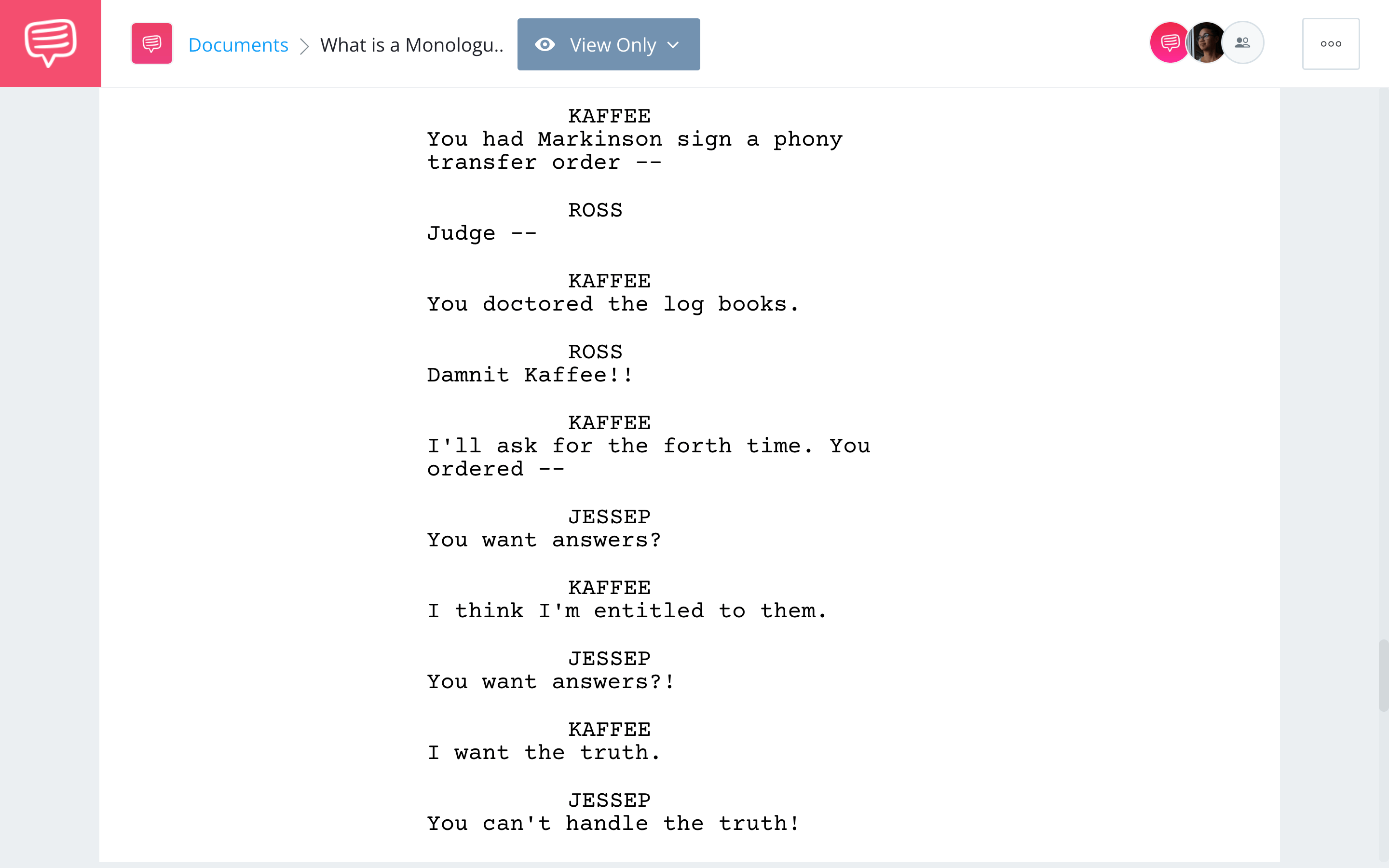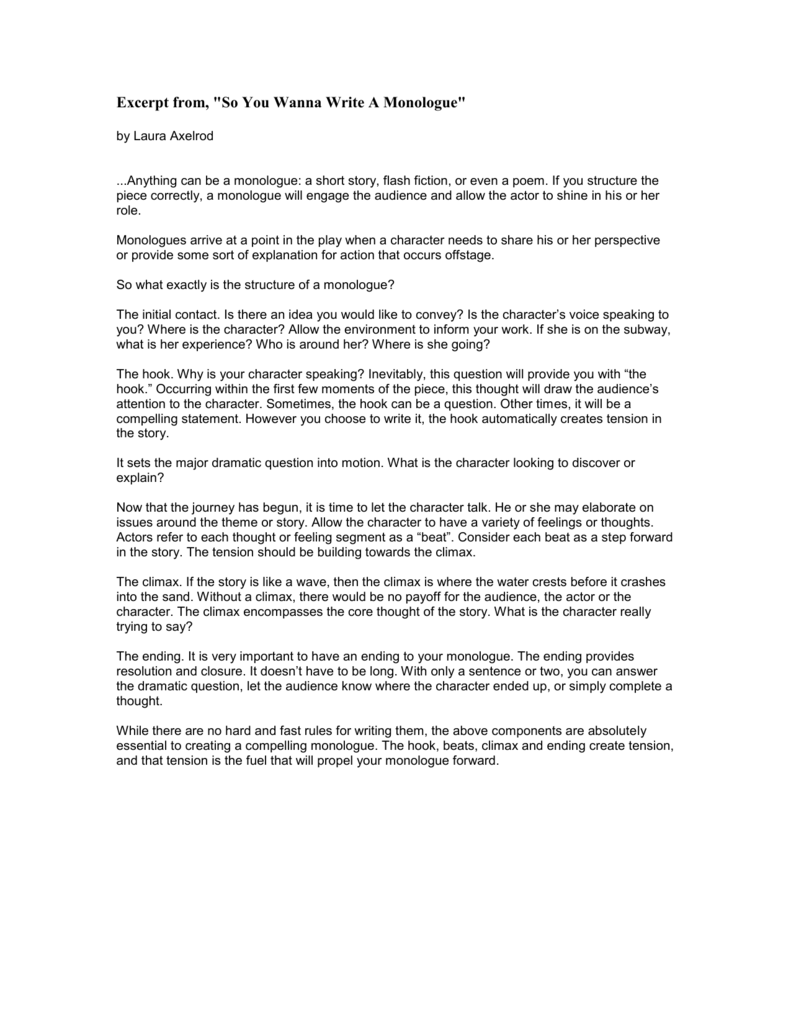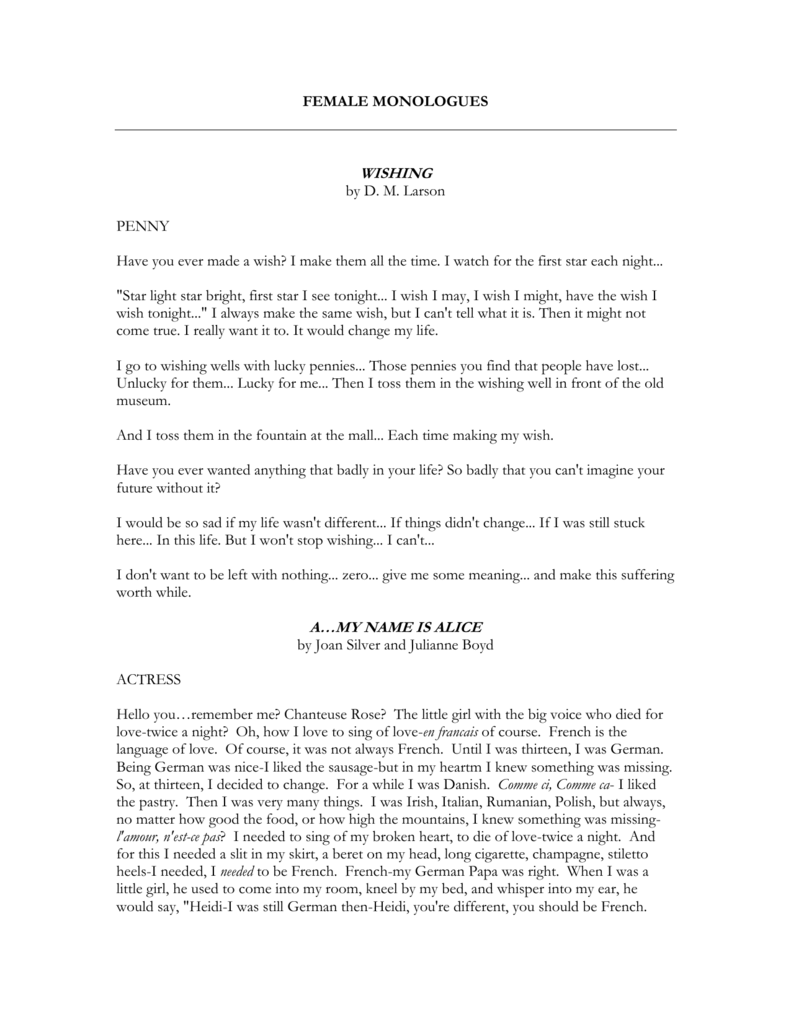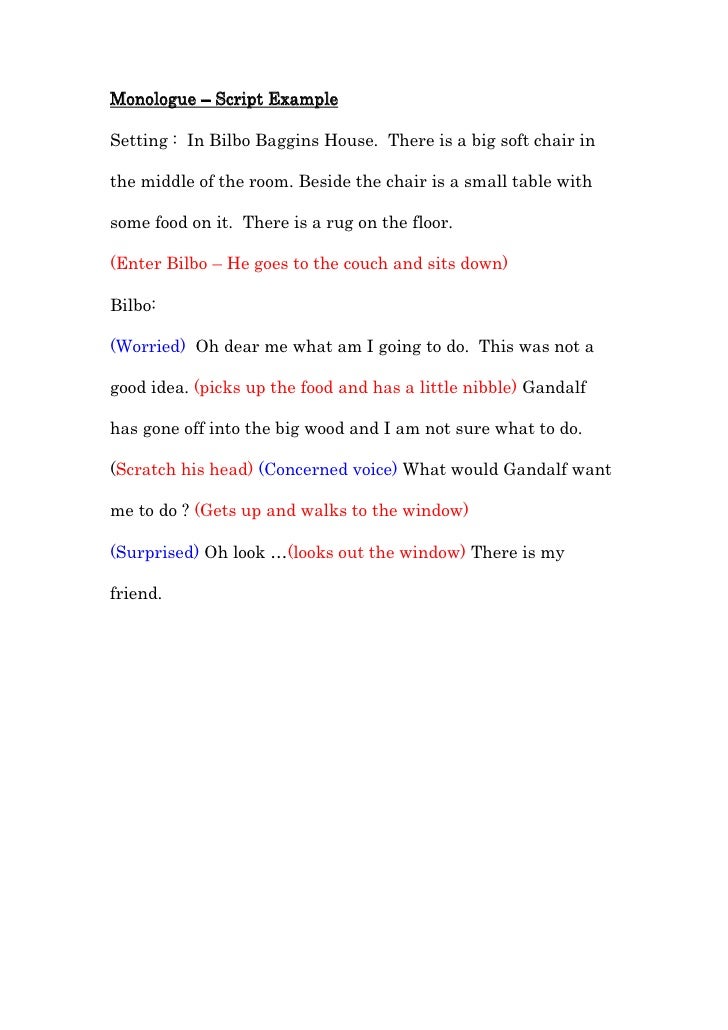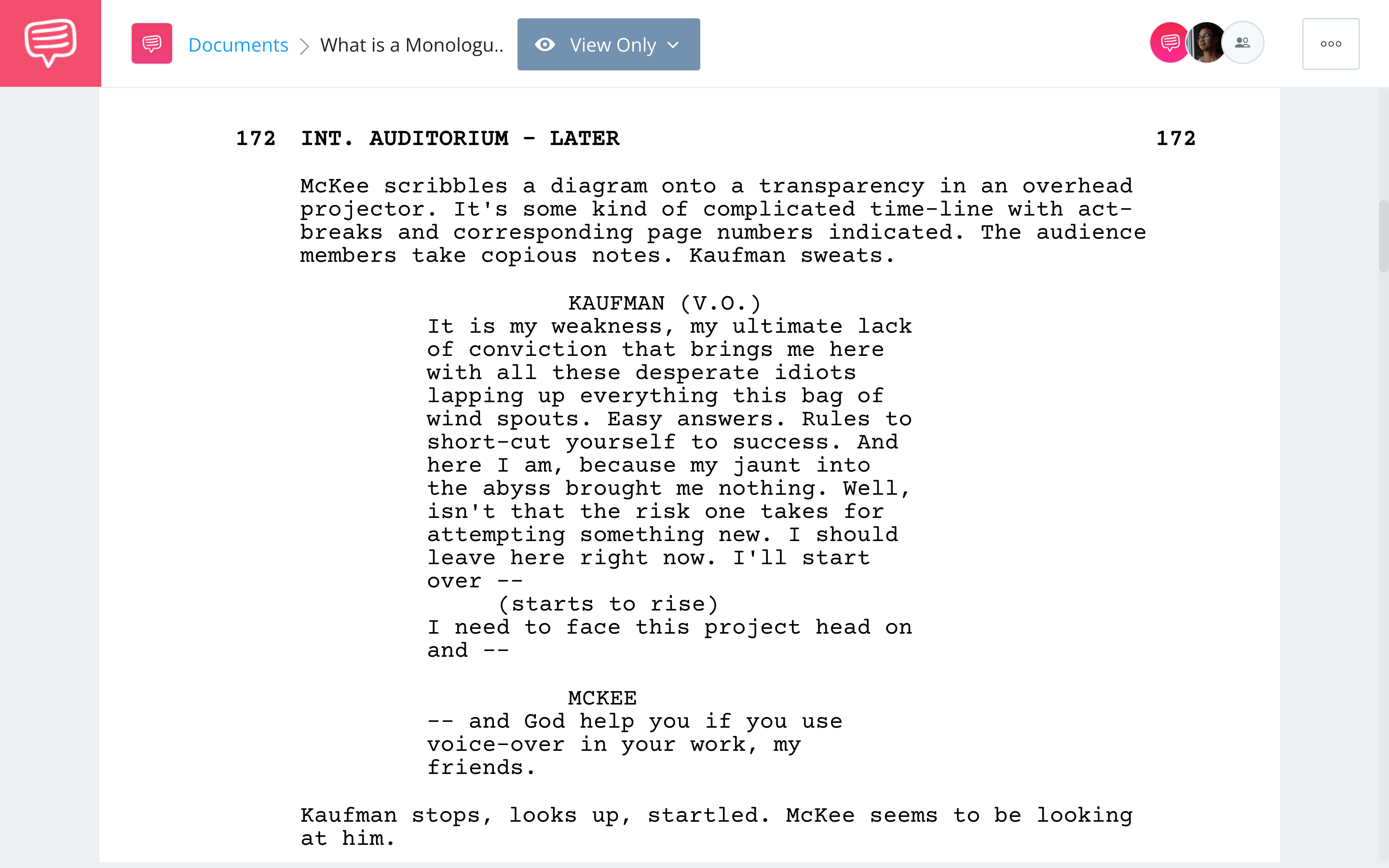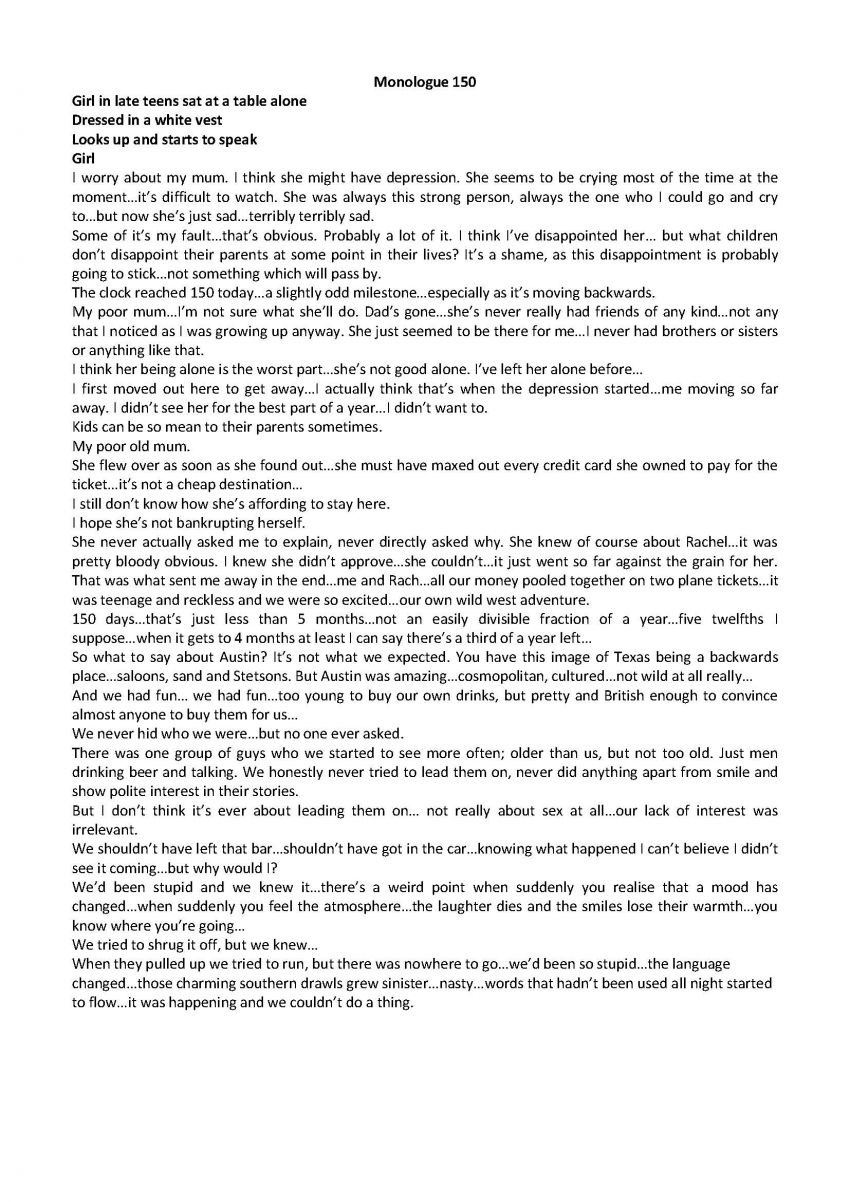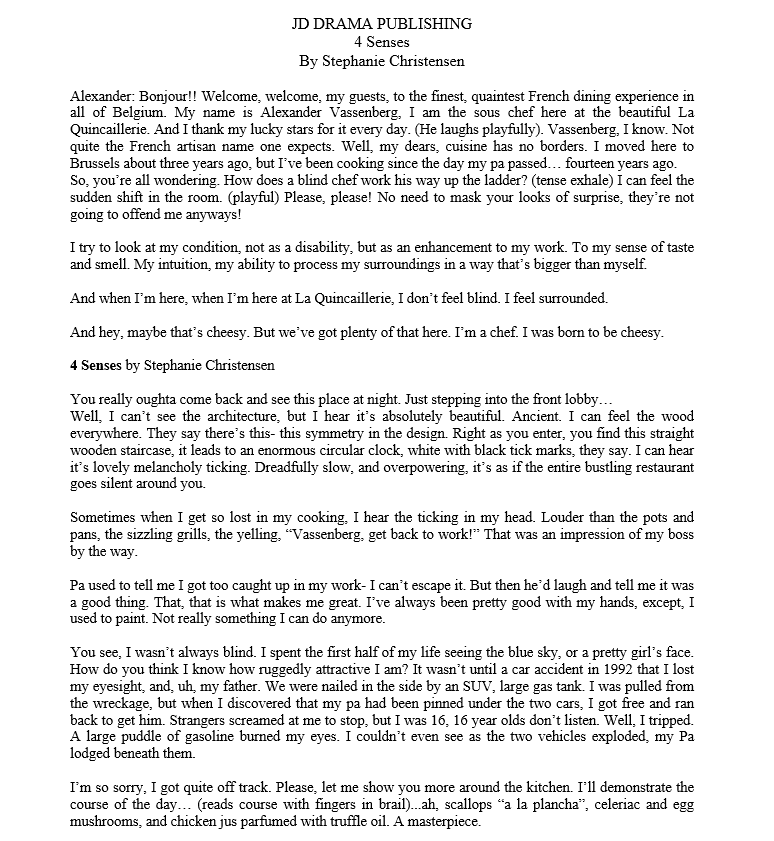Monologue Format
Monologue Format - A monologue is a speech (usually long) by a single character in a film, book, novel, or story. Learn about the different types of monologues, and how to write one in seven steps, with monologue examples from music and literature. Monologues serve a specific purpose in storytelling—to give the audience more details about a character or about the plot. There are different types of monologue that you may wish to know about before deciding which kind you will write. A monologue is a speech delivered by a single character in a play, film, or book, expressing their thoughts and emotions. A monologue is a lengthy, uninterrupted speech, spoken by a single character in theatre. It can be used for varied purposes such as to share a character’s viewpoints or to explain something to the readers (or audience). Used carefully, they are a great way to share the internal thoughts or backstory of a character or. It serves as a powerful tool for character development and plot advancement,.
It serves as a powerful tool for character development and plot advancement,. It can be used for varied purposes such as to share a character’s viewpoints or to explain something to the readers (or audience). There are different types of monologue that you may wish to know about before deciding which kind you will write. Used carefully, they are a great way to share the internal thoughts or backstory of a character or. Learn about the different types of monologues, and how to write one in seven steps, with monologue examples from music and literature. A monologue is a lengthy, uninterrupted speech, spoken by a single character in theatre. A monologue is a speech (usually long) by a single character in a film, book, novel, or story. A monologue is a speech delivered by a single character in a play, film, or book, expressing their thoughts and emotions. Monologues serve a specific purpose in storytelling—to give the audience more details about a character or about the plot.
Monologues serve a specific purpose in storytelling—to give the audience more details about a character or about the plot. Used carefully, they are a great way to share the internal thoughts or backstory of a character or. It can be used for varied purposes such as to share a character’s viewpoints or to explain something to the readers (or audience). A monologue is a speech delivered by a single character in a play, film, or book, expressing their thoughts and emotions. It serves as a powerful tool for character development and plot advancement,. A monologue is a speech (usually long) by a single character in a film, book, novel, or story. Learn about the different types of monologues, and how to write one in seven steps, with monologue examples from music and literature. A monologue is a lengthy, uninterrupted speech, spoken by a single character in theatre. There are different types of monologue that you may wish to know about before deciding which kind you will write.
Sample Monologues PDF Leisure
Monologues serve a specific purpose in storytelling—to give the audience more details about a character or about the plot. A monologue is a speech delivered by a single character in a play, film, or book, expressing their thoughts and emotions. Used carefully, they are a great way to share the internal thoughts or backstory of a character or. A monologue.
What is a Monologue — Definition, Examples & Types Explained
There are different types of monologue that you may wish to know about before deciding which kind you will write. A monologue is a lengthy, uninterrupted speech, spoken by a single character in theatre. Monologues serve a specific purpose in storytelling—to give the audience more details about a character or about the plot. It serves as a powerful tool for.
How to Write Monologues
There are different types of monologue that you may wish to know about before deciding which kind you will write. Used carefully, they are a great way to share the internal thoughts or backstory of a character or. Learn about the different types of monologues, and how to write one in seven steps, with monologue examples from music and literature..
sample monologues
It can be used for varied purposes such as to share a character’s viewpoints or to explain something to the readers (or audience). Monologues serve a specific purpose in storytelling—to give the audience more details about a character or about the plot. It serves as a powerful tool for character development and plot advancement,. Learn about the different types of.
How to Write a Monologue for a Play (with Sample Monologues)
A monologue is a speech (usually long) by a single character in a film, book, novel, or story. It can be used for varied purposes such as to share a character’s viewpoints or to explain something to the readers (or audience). Monologues serve a specific purpose in storytelling—to give the audience more details about a character or about the plot..
Monologue script example
A monologue is a speech (usually long) by a single character in a film, book, novel, or story. It can be used for varied purposes such as to share a character’s viewpoints or to explain something to the readers (or audience). There are different types of monologue that you may wish to know about before deciding which kind you will.
What is a Monologue — Definition, Examples & Types Explained
A monologue is a lengthy, uninterrupted speech, spoken by a single character in theatre. It can be used for varied purposes such as to share a character’s viewpoints or to explain something to the readers (or audience). There are different types of monologue that you may wish to know about before deciding which kind you will write. A monologue is.
Monologue 150 by Matt Fox (1015 min. Cut as needed. F) Dramatic
It serves as a powerful tool for character development and plot advancement,. Learn about the different types of monologues, and how to write one in seven steps, with monologue examples from music and literature. A monologue is a speech (usually long) by a single character in a film, book, novel, or story. A monologue is a speech delivered by a.
How to Write Dramatic Monologue (with Pictures) wikiHow
It serves as a powerful tool for character development and plot advancement,. There are different types of monologue that you may wish to know about before deciding which kind you will write. A monologue is a speech delivered by a single character in a play, film, or book, expressing their thoughts and emotions. It can be used for varied purposes.
Example Of Short Monologue Script
It can be used for varied purposes such as to share a character’s viewpoints or to explain something to the readers (or audience). A monologue is a lengthy, uninterrupted speech, spoken by a single character in theatre. Learn about the different types of monologues, and how to write one in seven steps, with monologue examples from music and literature. A.
A Monologue Is A Lengthy, Uninterrupted Speech, Spoken By A Single Character In Theatre.
A monologue is a speech (usually long) by a single character in a film, book, novel, or story. A monologue is a speech delivered by a single character in a play, film, or book, expressing their thoughts and emotions. Monologues serve a specific purpose in storytelling—to give the audience more details about a character or about the plot. There are different types of monologue that you may wish to know about before deciding which kind you will write.
Learn About The Different Types Of Monologues, And How To Write One In Seven Steps, With Monologue Examples From Music And Literature.
It serves as a powerful tool for character development and plot advancement,. Used carefully, they are a great way to share the internal thoughts or backstory of a character or. It can be used for varied purposes such as to share a character’s viewpoints or to explain something to the readers (or audience).

